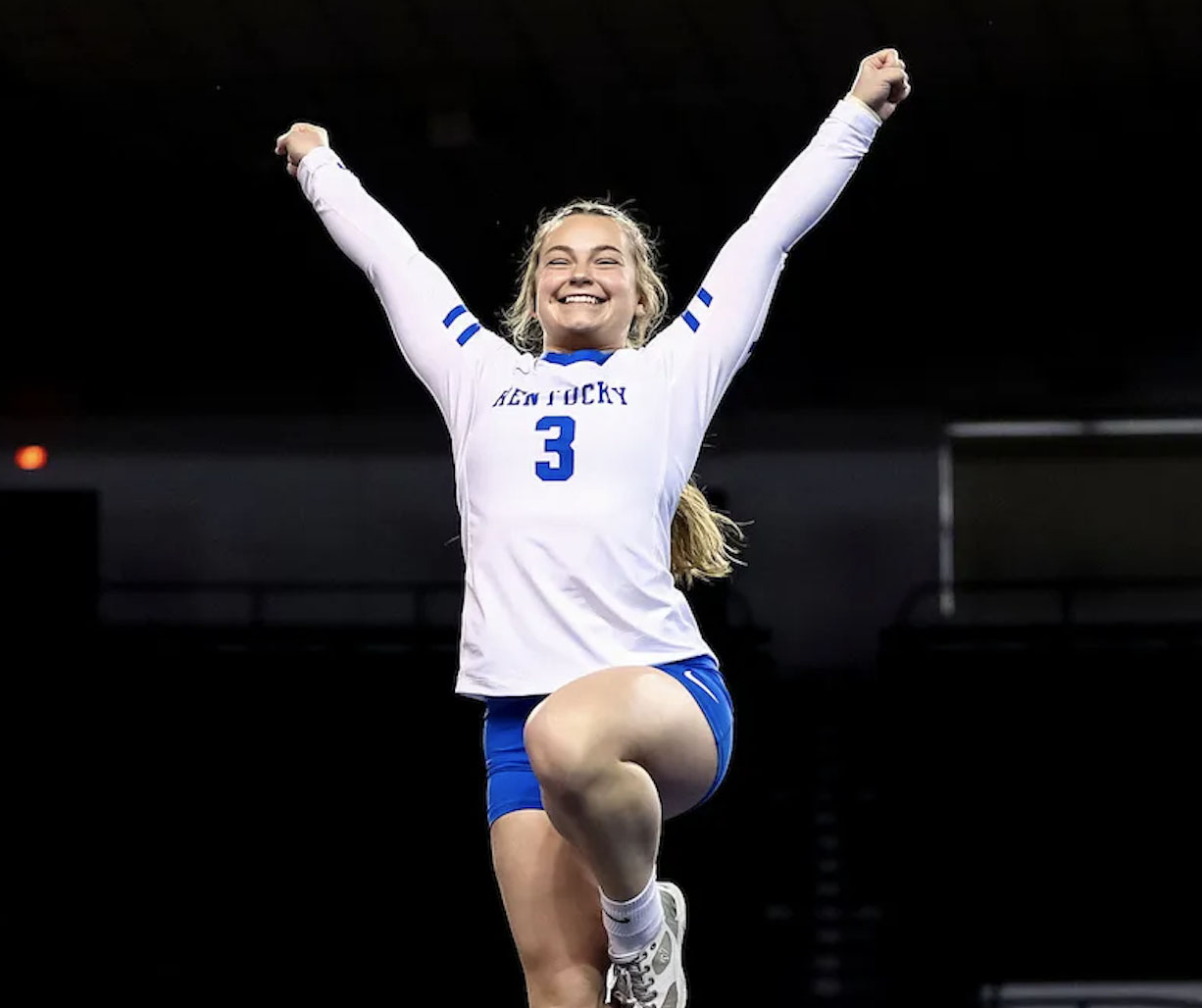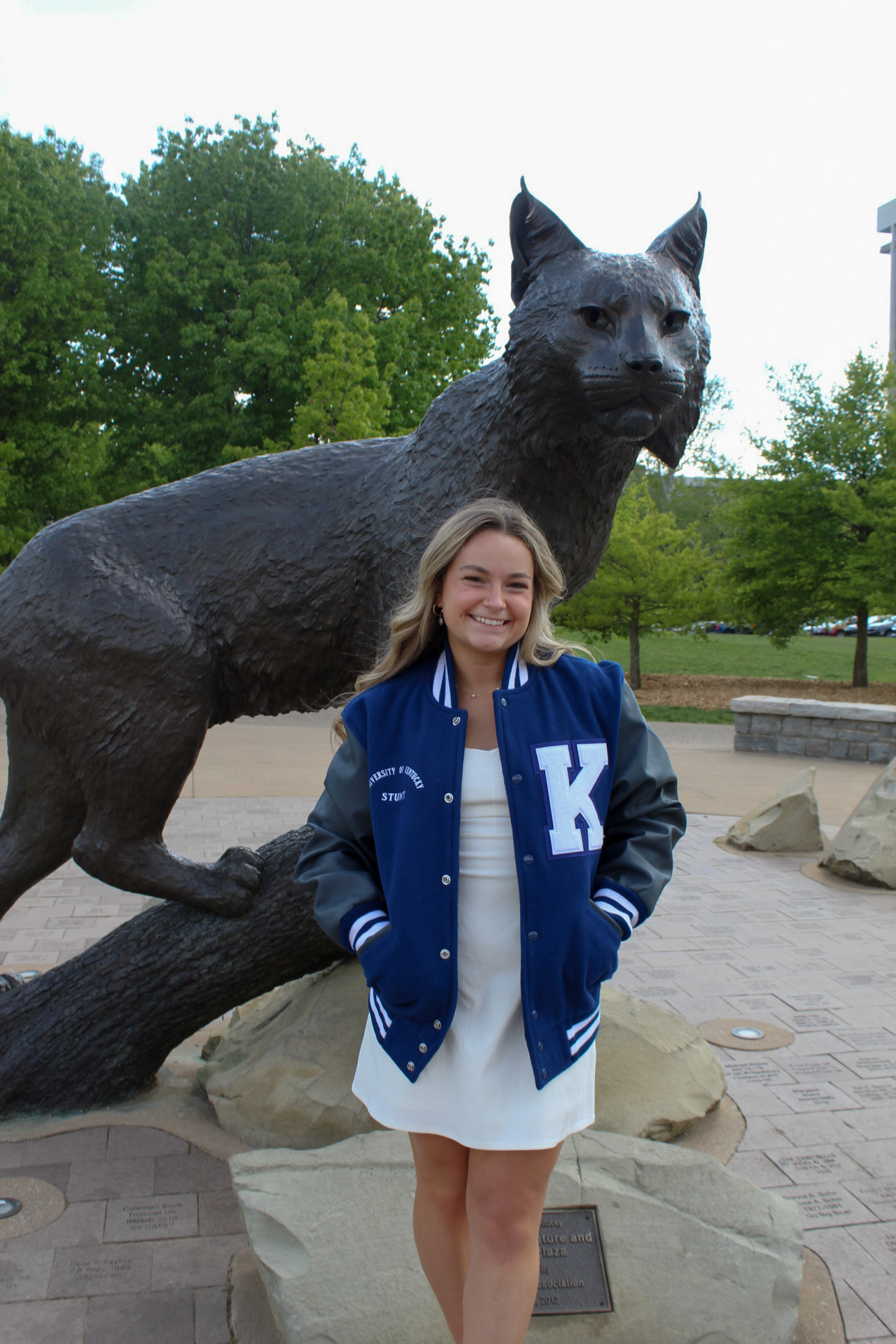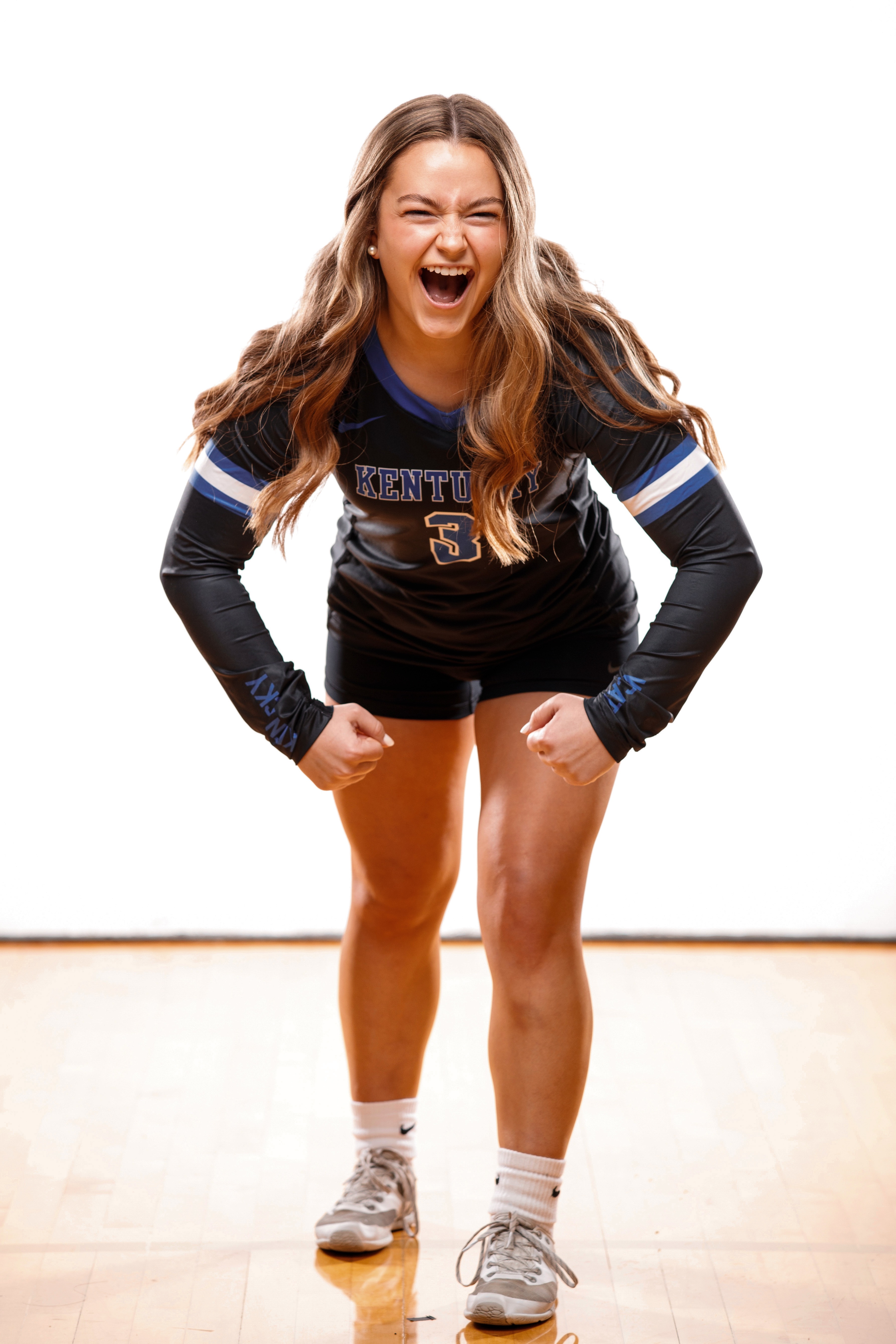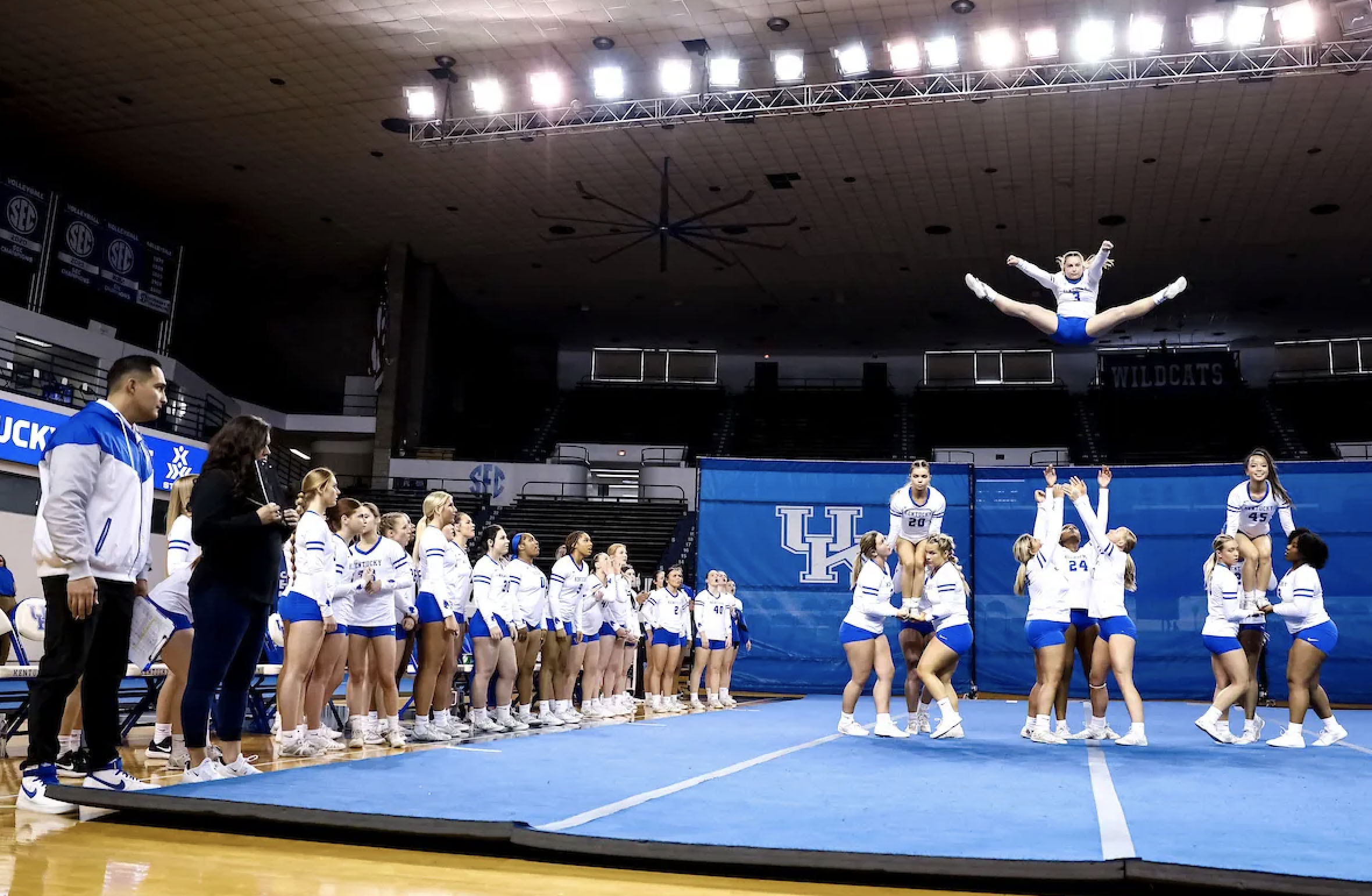Woods Never Knew She’d Become a Division I Athlete at UK
STUNT All-American says season and graduation have been ‘surreal’
By Ryan Clark
CHS Communications Director
Rachel Woods never thought she’d be a Division I athlete at the University of Kentucky.
In fact, the Louisville native grew up rooting against the Wildcats, as did her entire family. So, the chances of her going to school in Lexington were, at best, remote.

Then, the cheerleader from Assumption High School made a visit to campus. That was all it took.
“My best friend convinced me to take a tour,” she said. “And then when I visited, I was like, ‘This place is pretty cool.’”
Always wanting to do something in healthcare, Woods majored in Biology and decided to leave her cheerleading career behind. But it’s funny how life works, isn’t it?
“By the time I was a sophomore I’d learned about what a Physician Assistant is, so I switched to Human Health Sciences on the Pre-PA track,” she said. “And then I heard about our STUNT club team, and I got involved with that.”
Without even knowing it, she’d started down the path to a new life. And before it was over, she’d earn her degree and become an All-American.
Here’s 5 questions with new HHS graduate and STUNT All-American … Rachel Woods.
1. Can you explain what STUNT is?
Yes. It’s essentially all of the technical components of cheer. So, you know, like the baskets — where everyone’s flying in the air and the tumbling with the flips and stunts where you’re holding people on top of you — it’s exactly that, but without all of the crowd-leading aspect.
We don’t scream, “Go cats!” or anything like that. It’s a little bit less subjective than cheer, as we all perform the same routines. Games last about 45 minutes, and it’s a lot of fun for fans to come and watch.
In my junior year, our club team was actually transitioned into a Division I sport. So, immediately, we were all Division I athletes and it was a little bit of a shock.

2. And what were the changes when you all went Division I?
Well, the one thing we had was the complete backing of the athletics department. They want nothing more than for us to be successful. We were able to play and practice in Memorial Coliseum. We had access to all the eating and nutrition and weight programs that the other teams had, so that became a great benefit for all of us.
Of course, it also made it more difficult when it came to studying and schoolwork. I definitely had some late nights where I was studying, and there were some times when I missed out on some social activities because I was balancing schoolwork and sports, but I wouldn’t trade it.
The good thing for me was, the professors in the College of Health Sciences care about you. I mean, they really care about you and want you to succeed. So, when there was a time when I needed extra help or extra time, my teachers were always supportive. They know what it’s like to work with athletes.
It was all surreal.
3. By the time you were a senior, you and the team took a leap forward. How did it happen and what was that experience like?
I decided in the off season leading up to my senior year that I wanted to become a leader. I wanted to become the kind of athlete that my Coach could depend on to become a consistent scorer in all events. I’d always loved tumbling, or flipping on the ground. But I also wanted to work on my stunting, which is flying through the air, and that had never been a strong suit of mine. So, I worked on it, and my Coach was really great, and I became better.
And we were able to recruit, and we brought in a lot of talent, which helped a lot.
We had some close games, and we fixed some things we needed to fix along the way. We started to understand why things weren’t going our way and we made them better. We really came together and I absolutely love my teammates, and we turned it around and ended up qualifying for nationals.
In the end we finished national runners-up and I was named an All-American. I really never thought something like that could happen.
4. So, with all of these things you’ve picked up along the way, is there anything you can apply to your healthcare life, or your next endeavor — which is applying to PA school?
Those in the PA profession are meant to work in a team-based setting. You know, you obviously are not wholly autonomous. You work under a doctor. You’re working with nurses and PAs.
All of these people in healthcare work as a team. It’s not just you. And I think one of the really important things that stunt has taught me is that there are going to be days that I might not agree with someone fully. There might be days that you know, we’re not on the same page. But we are still a team, and we are still working towards that same end goal.
We have the power to work things out instead of letting problems fester. I think that was a really big thing. With STUNT, I felt so close to my teammates — not because we were similar or not — but because we all had very, very similar end goals, and we all had a very strong sense of hard work. So even if I didn’t agree with you, we could put our differences aside in the best interest of the team.
I think when you go into healthcare, you really have to kind of put your ego to the side and do what’s best for the patient.

5. You graduated recently with your HHS degree and now you’re applying to PA school. What do you say to people who might ask you about going down a similar road? What do you say about CHS?
You can’t go wrong. There’s other majors that are helpful for healthcare. But I don’t think any other program is so specifically tailored to healthcare like HHS. I mean, when I came into college, I didn't know anything about insurance. I didn’t know anything about the laws and healthcare.
This is everything you need to know about healthcare to make you a competent provider. It doesn’t just look at it from one perspective. And you know, had I not been exposed to those classes and experiences, I don’t think it would have really crossed my mind until I was out practicing — and then I would be very unprepared.
You don’t want to just be a provider that goes through the day to day — you need to know more. And I think (CHS) just does a really, really good job of making sure that we are fully informed before we leave.
